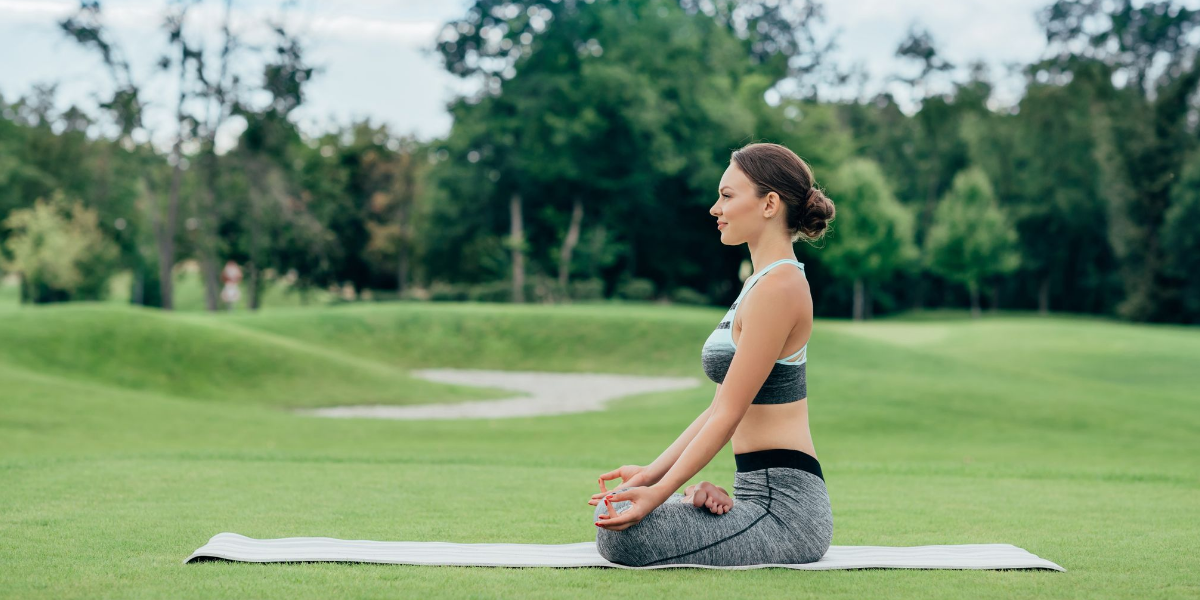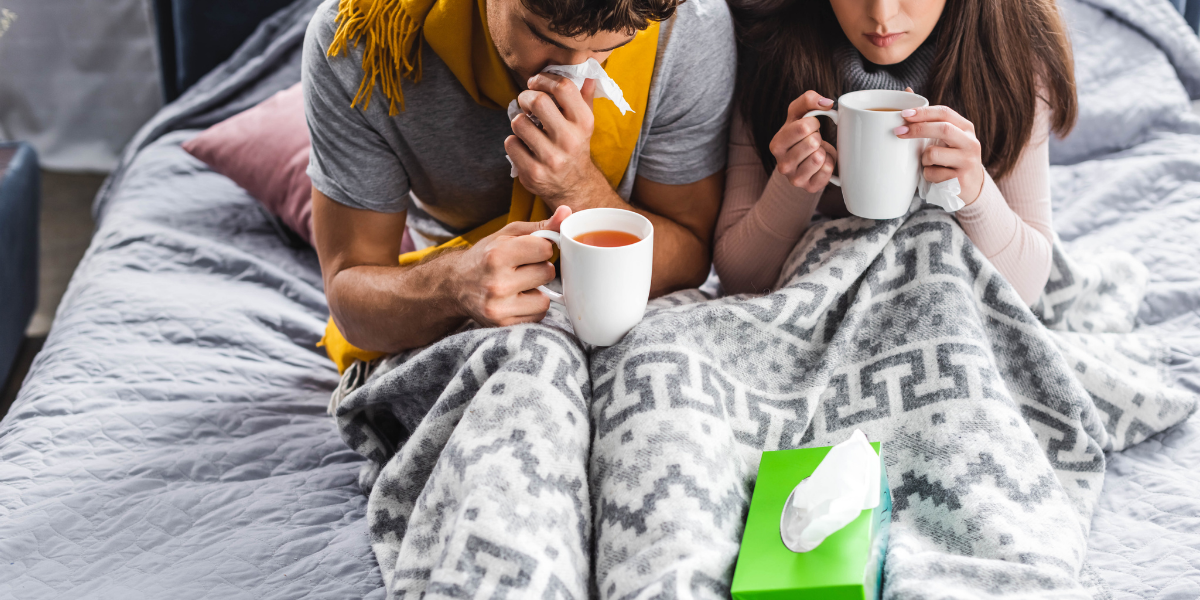Every season is a beautiful season. However, it may also bring seasonal allergies. Allergies are the result of the immune system's overreaction to harmless substances, such as pollen, mold, and dust. The symptoms of seasonal allergies can range from mild to severe, and they can make life miserable for those who suffer from them.
If you are looking for ways to combat allergies and enjoy each season to the fullest, you are in the right place. In this guide, we will discuss everything you need to know about seasonal allergies and how you can prevent them.
What Causes Seasonal Allergies?

When a person's immune system interprets specific proteins, known as allergens, as pathogens or foreign objects, allergies develop, according to research. There are two stages to developing an allergy and having an allergic reaction. The first stage starts when the body comes into contact with the allergen for the first time and produces antibodies that attach to particular cell types.
Sensitization is the process that prepares the body for an allergic attack the following time it encounters the allergen. The cells then release histamines, which are chemicals that carry on unpleasant symptoms such as sneezing, coughing, and skin rashes.
If you suffer from seasonal allergies, you may encounter other symptoms including:
• Runny and stuffy nose• Watery eyes
• Itchy eyes and nose
• Dark under-eye circles
For different people, certain allergies are problematic. Tree and grass pollen, mold spores, dust mites, and insects are the usual seasonal allergy triggers.
Depending on their triggers, some people may be affected by allergies in the spring, summer, fall, or even winter. If someone is allergic to several different forms of pollen, they may experience symptoms for the majority of the year, according to research. People with indoor allergies, particularly those allergic to dust mites and pets, also may have symptoms.
8 Tips and Tricks to Prevent Seasonal Allergies
People with allergies are familiar with how challenging it is to find relief, especially in months with high pollen counts. Here are some practical strategies you can do to lessen allergic reactions:
Take probiotics
Allergies are caused by immune system imbalance, which leads the body to react to stimuli. Numerous studies show a correlation between lower allergy rates and the presence of good bacteria in the gut. Probiotics can strengthen the immune system, slow the growth of harmful organisms, and increase the production of chemicals that improve the immune system.
Detox the body

Toxins in the body often make allergies worse. Allergies can intensify when the liver is overused from metabolizing our stress, drugs, alcohol, and processed foods. The liver is a powerful mediator of inflammation in the body. Avoid fried foods, sweets, alcohol, and other toxins from your diet to detox your body. Instead, try foods and herbs that are good for the liver such as milk thistle, turmeric, artichokes, citric fruits, and almonds.
Put on a face mask
When you can't avoid some allergy triggers, such as when you work in your yard or vacuum, it will prevent allergens from entering your airways. 95% of small particles, including pollen and other allergies, are blocked by an N95 respirator mask, which is readily available at the majority of pharmacies and medical supply stores.
Keep your indoor and outdoor air clean

Your allergy symptoms will lessen if you keep the allergens out of your homes. Using your air conditioner in your home and while in the vehicle will help keep the air flowing and reduce the pollen count that settles in your household.
To reduce the allergens in the air you breathe, be sure to periodically change the air filters in your house, especially during allergy season. Get a HEPA (high-efficiency particulate air) air purifier to help keep your home air clean. HEPA filtration captures allergens like pollen that other air purifiers might recirculate in your home by forcing the air through a tiny mesh.
The idea is to keep air moving as much as you can to prevent pollen and other seasonal allergens from gathering, which will make them more irritating to your eyes, mouth, throat, and skin.
Moreover, if you intend to work out outside, remember to always check the area and be mindful of any visible allergy triggers. Each of us is impacted by the outdoor air we breathe, but those who have asthma may experience additional difficulties.
Drink more fluids
Drink additional water, juice, or other non-alcoholic beverages if your allergies are making you feel congested or giving you a postnasal drip. The additional drink can help you feel better by thinning the mucus in your nasal passages. Adding steam to warm liquids like tea, broth, or soup has an additional advantage.
Get rid of allergens before you go to sleep

Showering and rinsing your hair before you sleep is a good idea during allergy season. The skin and hair act as a magnet for airborne allergens during the day. Dust and pollen won't build up on your pillows and sheets if you wash them clean. For every piece of clothing you wear outside, you must follow the same procedure.
Moreover, it is important to have at least an ample amount of sleep. According to Dr. Deepak Chopra, an expert in integrative medicine and the author of The Healing Self, the most essential biorhythm is far too frequently disregarded. The ideal amount of sleep for an adult is between eight and nine hours per night. It should be as calm and dark as possible in your bedroom. “After a busy day, meditate for five minutes before going to bed,” he suggested.
Clean your sinuses

To get rid of any remaining pollen and other allergens in your system, rinse your sinuses with saline solution. It may feel strange and unsettling to perform a nasal rinse for the first time. As a result, the allergens that make you sneeze, feel throat discomfort, and experience nasal congestion is directly flushed out of your nose. The majority of pharmacies sell nasal rinsing kits. They will be supplied with a solution to use, a squeeze bottle, or a neti pot. Those who experience seasonal allergies may find this to be quite helpful. If you do it right before bed, it can also improve the quality of your sleep.
Seek your physician
The next step is to visit your primary care practitioner if over-the-counter drugs, sinus rinses, and air filtration in your house are ineffective. Providers can assist you in identifying the exact allergens that are causing your symptoms if your seasonal allergies are particularly uncomfortable. You can get assistance from your doctor in treating your problems.
Takeaway
Our quality of life can be significantly impacted by seasonal allergies. It's a good thing that we can control how we respond to airborne particles. By being aware of the causes and symptoms of seasonal allergies as well as preparing yourself with practical techniques to control your symptoms, you can still take part in both indoor and outdoor activities.
Renpho Health Tips
-

Fun Ways to Get Fit on a Budget
Sep 29, 2022
Read more >
-

Healthy Diet Tips - Healthy Foods for Your Weight Loss Journey
Nov 09, 2022
Read more >
-

Healthy Habits to Keep You in Good Shape in the New Year
Jan 04, 2023
Read more >
-

7 Good Habits to Improve Your Gut Health
February 21, 2023
Read more >
-

5 Meditation Techniques to Clear the Mental Clutter
February 8, 2023
Read more >
